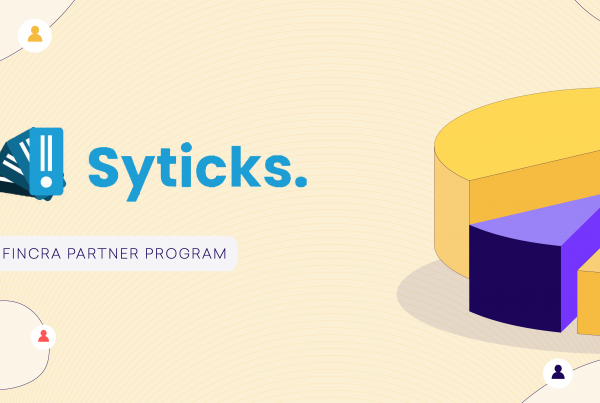Kazeem Noibi was among experts that spoke on TechNext’s Twitter Space about the state of fintechs in Africa.

Financial technology has impacted Africa, revolutionising the financial industry and deepening financial inclusion to a considerable percentage of the unbanked, improving economic activities. Industry-wise, fintechs have continued to overshadow all other startups with five of the continent’s six unicorns.
Despite the impact and success in the continent, there have been some concerns that the fintech space is oversaturated. It’s been an ongoing conversation; the Chief Executive Officer of Fincra, Wole Ayodele wrote an op-ed on it, which was published on Forbes Africa and Business Insider.
These conversations around fintech companies in Africa and how many of them we need continued in a Twitter Space on Thursday, June 23, 2022, with a host of experts. Among the experts was the Chief Technology Officer of Fincra Kazeem Noibi.
While speaking in the Spaces session, Noibi highlighted five points about the conversation around fintechs in Africa.
1. Fintechs have helped banks
Noibi’s first point in the session was to highlight the impact fintechs have had on traditional financial institutions like banks. Fintechs and banks regularly collaborate to make the payment ecosystem work. We wrote about these collaborations here and here.
“While the banks are focusing on their major role, of being like the foundation for processing transactions, the Fintechs have actually helped the banks. The Fintechs have helped the banks to accelerate their plans to accelerate their revenue.
“If you see any bank declaring any revenue today, you know if you see banks declaring revenues from online transactions from POS transactions; most of these revenues that a lot of them are declaring are actually coming from the activities of fintechs.
“Because for example, if you process transactions as a fintech presently, you will literally still go through a traditional banking system, especially for payouts and card collection. So in its real sense apart from the fact that Fintechs are doing things differently, fintechs have also been able to accelerate the rate at which banks are providing and deepening their markets. So it’s not that fintech exists in isolation. Everybody still exists based on the capacity of the traditional banking system.
2. Fintech as banks for the entire tech ecosystem
Noibi’s second point was the role fintechs play for other players in other tech sectors. As other sectors take to technology to provide solutions, it’s only expected that the way they process payments is via technology. This is where fintechs are also important, according to the CTO of Fincra, a payment infrastructure provider.
“Let’s look at fintech as a base for every other sector in the tech space. You have health tech companies; you have proptech companies; all these companies are on their platform going to accept payment at one point or the other. They are going to have some level of integration for payment platforms for them to be able to accept payment. So look at the fintech space as the bank of the entire tech ecosystem and right now we do not have enough of that yet.
“You can still count the number of people in the health care sector. You can still count the number of people in the propTech sector. That tells you that when these people come on board, you want to know that all these guys will depend on fintech to take care of the payment part of it. If you look at the number of fintechs we have right now in the platform play, app play, and the likes, I don’t think we are even halfway.
3. Why Fincra’s offerings are special
Of course, Noibi wouldn’t speak during that session without talking about Fincra, where he is the CTO. When people think of fintech, they assume every player in this vertical is offering the same service. Noibi points out why Fincra is special.
“At Fincra, we found out that the Infrastructure play in the fintech space is still not solved; I mean, they are existing players, but the infrastructure play that is required for people to build borderless payment is still not being solved and that is one of the things that Fincra came to solve.
“So we provide a platform for people who are building technology and fintech solutions to be able to provide payment services, both online and offline services like cross border payments being able to receive payments from the countries that we support, being able to make payments into countries that we support and most importantly, being able to expand much more than the online market.
“Like the offline market, if you are building a solution, you need to provide offline collection via POS, via agents, you have a retail store, or you are building something for the retail market.
“So we help provide integrations and APIs for you to achieve all these things and these are some of the things that we saw that are not existing yet in the industry and have not been fully solved in the industry that we are currently solving.
4. Fintechs are driving regulations
Another point that Noibi highlighted was the role of fintechs in driving regulations from the government.
“Technology always moves faster than regulations in most places. You would not think that a government would sit down and start thinking about regulations around cryptocurrencies and the likes. It came to them and they were shocked, and everyone started building regulations around it.
“I think that technology would always wake many of these governments up because they are platforms/infrastructure being built. I was in Kigali last year and I was able to use an app that was built in Africa to load my wallet with a Nigerian account and make payments in Rwanda.
“I think technology can also force the government to make regulations because when you are on a platform play and you are providing the technology that is providing these services, and at that point you are driving the numbers.
“You saw at a point when the CBN governor was openly attacking an AbokiFX that had nothing to do with the exchange rate. Because the guy felt threatened by the influence that he thinks those guys have over the currency, the exchange rate of the country and at the end of the day, he probably discovered that these guys were doing their own bit to help us get informed about the market; they had gone and shut down and nothing actually changed. So I see technology driving these things as the world moves, especially in the world that we live now, that the market dynamics are constantly changing because of the different factors.
5. Helping the economy
Fintechs have revolutionised how we make transactions in Africa. With more people accessing financial services, the rate of transactions has increased, also helping to improve economic activities. That was Noibi’s final point on the importance of fintechs.
We do not have enough fintechs and I think our economy and everybody agree with me that our economy needs more fintech because we have a bunch of problems to solve.
I think as we evolve, as we grow as a country or as a continent, we’ll go to have more fintech that are going to even solve the problem that the current fintechs are having in terms of maybe infrastructure or in terms of maybe accounting in terms of other things, liquidity and likes. So, in a nutshell, we don’t have enough yet.




